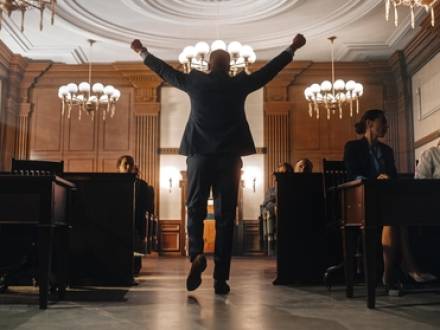When Can You Appeal a Criminal Conviction?
 Illinois law gives you the right to appeal your criminal conviction in most cases, but that doesn’t mean filing an appeal always makes sense. Understanding when you can appeal and what issues you can raise helps you know your options after a conviction.
Illinois law gives you the right to appeal your criminal conviction in most cases, but that doesn’t mean filing an appeal always makes sense. Understanding when you can appeal and what issues you can raise helps you know your options after a conviction.
Appeals are complicated and have strict deadlines. Our Wheaton, IL criminal defense attorneys have strong experience in state criminal appeals courts. We can meet with you and help you think through what you want to do next.
Do You Have an Automatic Right to Appeal a Criminal Conviction?
Illinois law gives defendants in 2025 an automatic right to appeal most criminal convictions, both felonies and misdemeanors. You do not need to prove anything or get permission from a judge to file an appeal; you simply file a notice of appeal within the deadline.
Under Illinois Supreme Court Rule 606, you must file your notice of appeal within 30 days of the date the judgment is entered. The only exception to the automatic right to appeal is if you pleaded guilty as part of a negotiated plea agreement. When you plead guilty, you generally waive your right to appeal most issues.
When Does it Make Sense to Appeal a Criminal Conviction?
You cannot simply argue that the jury got it wrong or that you are actually innocent. Appeals courts are concerned with whether the legal process was followed correctly.
For example, improper jury instructions give you grounds for appeal. Jury instructions must accurately state the elements of the crime and the burden of proof. If the judge gave the jury incorrect instructions about the law, this can be a reversible error.
Another common reason for appeals is evidentiary errors. If the judge let the prosecutor introduce prejudicial evidence that should have been kept out, or if the judge prevented you from presenting key evidence in your defense, these errors can support an appeal.
How Long Does the Criminal Appeals Process Take?
After you file your notice of appeal, your lawyer must order transcripts of your trial. The court reporter prepares these transcripts, which can take several weeks. Your lawyer then writes and files an appellate brief arguing why your conviction should be overturned.
The prosecution will file a response brief defending the conviction. Your lawyer may file a reply brief. The entire briefing process for a first appeal typically takes six months to a year. After briefs are filed, the appellate court may schedule oral arguments where lawyers present their arguments to a panel of judges. The court then takes time to review the case and issue a decision.
What Happens If You Win Your Appeal?
Winning your appeal does not always mean you go free immediately. The appellate court can reverse your conviction completely, which means the case is over and you cannot be retried, but this outcome is rare.
More commonly, the appellate court reverses your conviction and remands the case for a new trial. This means you get a second trial where the legal errors from the first trial will not be repeated. The prosecution can proceed with the new trial or decide to drop the charges.
Sometimes the appellate court affirms your conviction but reverses your sentence. If this happens, the case goes back to the trial court for resentencing with proper consideration of the law.
Call a Wheaton, IL Criminal Defense Attorney Today
Being convicted of a crime does not mean your fight is over. You have appellate rights that can lead to the reversal of your conviction or a new trial, but protecting those rights requires acting quickly and getting experienced help.
Our Rolling Meadows, IL criminal defense lawyers have handled over 20,000 misdemeanor and felony cases and argued before the Supreme Court. With considerable experience in Illinois criminal appeals, we know how to identify winning appellate issues and fight for your freedom at every level of the court system.
Contact Ramsell & Kunowski, L.L.C. at 630-786-6062 for consultations about your criminal appeal. We have a 24/7 answering service available.




